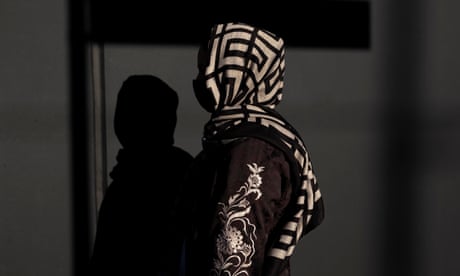- by foxnews
- 23 May 2025
‘The Taliban want revenge’: Afghanistan’s female judges in exile in Australia
‘The Taliban want revenge’: Afghanistan’s female judges in exile in Australia
- by theguardian
- 20 Feb 2022
- in news

It was the toughest decision these judges ever made. To flee Afghanistan, the country they love and spent years working to rebuild. To leave behind the familiarity of family and friends for new, unknown lives on the other side of the world.
A sentence of exile, to save their lives.
In mid-August, amid the chaos of the US armed forces' abrupt pullout from Afghanistan, female judges and prosecutors faced a perilous future.
Key actors in the country's fragile justice system, they had jailed high-profile terrorists, drug barons and violent criminals.
Overnight, with the withdrawal of foreign forces and the fall of Kabul, they were left exposed and vulnerable to deadly reprisals.
"At 10am I was at work in Kabul. At 11am I got a phone call: 'The Taliban are in control. They are looking for you, go home and hide,'" said Farah Altaf Atahee, who fled with her husband and three children.
The Guardian met Atahee and other female judges in mid-December in Athens, where they had been evacuated from Afghanistan and were awaiting relocation to new homes.
Fifteen judges and their families - a cohort of about 70 people - have now been resettled in Australia.
As she recounted the events of the day the Taliban seized power in Kabul, Atahee fought back tears. She said she realised that thousands of recently released prisoners, including Taliban leaders and heroin traffickers, the violent criminals she had sent to jail, wanted revenge on her and other judicial officers.
"Everything we worked for, everything we had, gone," she said, from the Melissa office, an Athens-based NGO supporting refugees. "My home, my family, my work, my life, my savings, all gone, in less than an hour."
Thirty-one-year-old Mahtab Fazl tells a similar story. She escaped Afghanistan's Herat city with her husband and two young boys, but fears still for the family they were forced to leave behind.
"Because of my job as a judge, every day they are facing risks, they're in danger," she said. "We need to get them out of Afghanistan."
Australia has committed to taking in some of these women and their families as part of its humanitarian pledges to support Afghan allies and vulnerable people. But the seemingly generous offer for help is increasingly looking inadequate.
A Department of Home Affairs spokesman said female judges would be processed as part of an "agreement of 3,000 places allocated to Afghan nationals within its 13,750-humanitarian visa quota" for 2021-22.
A Senate inquiry report tabled earlier this month on the withdrawal from Afghanistan, and its response to the fall of Kabul to the Taliban, labelled Australia's actions as "dishonourable". The inquiry found former Afghan interpreters for the Australian military, and other colleagues left behind, were at a high risk of brutal reprisals.
The Australian immigration minister, Alex Hawke, has announced 15,000 places, over four years, for Afghans through its humanitarian and family visa program. Again, though, that figure, which at first glance looked generous, appears to be repackaging of old commitments to humanitarian visas that predated the Taliban seizing power in Kabul. Some critics go further - they say the number of visas the government is now offering vulnerable Afghans is actually lower than previously allocated.
Solicitor Sarah Dale, director of the Sydney-based Refugee Advice and Casework Service, said Australia could offer 20,000 additional humanitarian visas that were "easily manageable" as pandemic travel restrictions have freed up resources in the system.
"After 20 years of military engagement, of commitments to the people of Afghanistan, why are we not offering more to those left behind?" she said. "We've turned our back on our moral obligations to do more."
Dale said the government's announcement of 5,000 places in the family stream over four years was less than what was granted previously.
"The 10,000 humanitarian visas, over four years, must not include those already evacuated, as it would leave fewer additional places," she said.
The London-based International Bar Association (IBA) Human Rights Institute had dedicated years supporting Afghanistan to professionalise its legal fraternity. Director Baroness Helena Kennedy, QC, said judicial officers faced potentially deadly reprisals.
"These women were in mortal danger and facing imminent death when we evacuated them," she said.
She said the IBA was still negotiating with the Australian government to add five more judges and their families to Australia's resettlement quota, in fulfilment of an original agreement to accept 20 judges and their families.
But, even now in the relative comfort and safety of Sydney, Atahee remains conflicted.
"My anxiety is about my family, they are so afraid," she said. "The Taliban want revenge, especially for women judges."
Another judge, whom the Guardian has chosen not to name because she fears retribution for family still in Afghanistan, said her four children, mother and husband are now in a Melbourne hotel waiting to find a home of their own.
"We spend every day hoping Afghanistan goes back to normal, and hoping we can go back one day," she said. "Afghanistan is our home, all we can do is hope it gets better," she said.
Asked about her first impressions of Melbourne, Mahtab Fazl said: "It looks great. Weather, people, food, everything is good.".
One thing all the Afghan women repeated was the hope for their children to start school as soon as possible.
"We want a bright future for our children," Fazl said. "We see this future is now in Australia."
- by foxnews
- descember 09, 2016
United Airlines flight returns to Hawaii after concerning message found on bathroom mirror; FBI investigating
United Airlines Flight 1169 to Los Angeles returned to Hawaii after a "potential security concern" aboard the plane. The FBI and police are investigating.
read more


